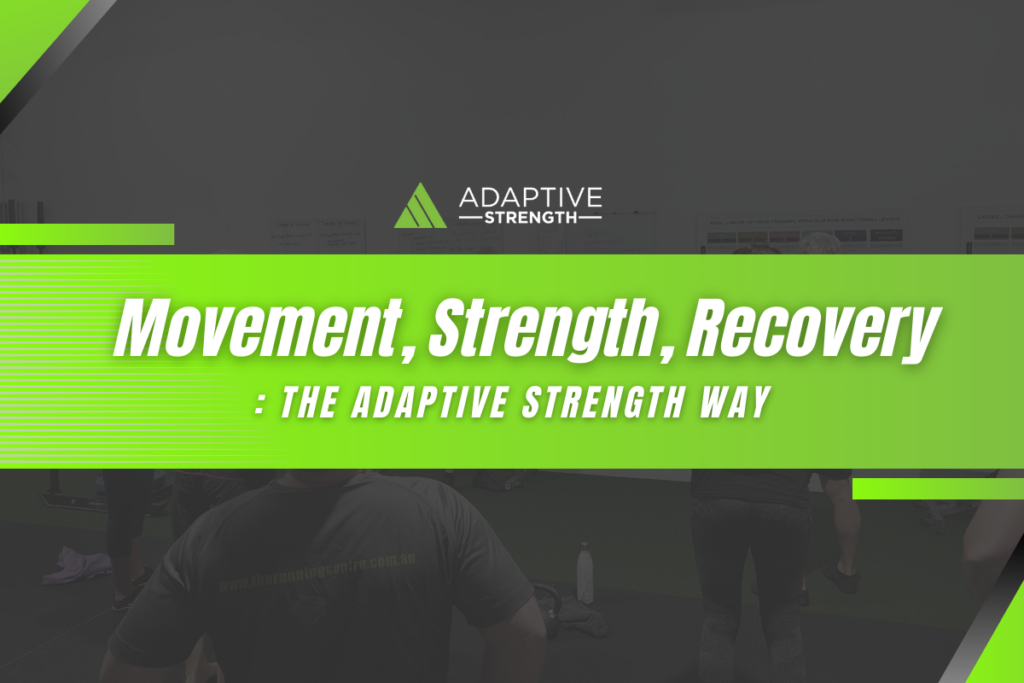You Don’t Just ‘Work Out’ Here — You Learn Skills That Last a Lifetime
Why Movement, Strength, and Recovery Are All Skills You Can Master Most gyms focus on burning calories and lifting heavy.We focus on teaching you how to move well, build strength smartly, and recover like an athlete. At Adaptive Strength, we don’t treat fitness as something you survive — we treat it as something you learn.That …
You Don’t Just ‘Work Out’ Here — You Learn Skills That Last a Lifetime Read More »



